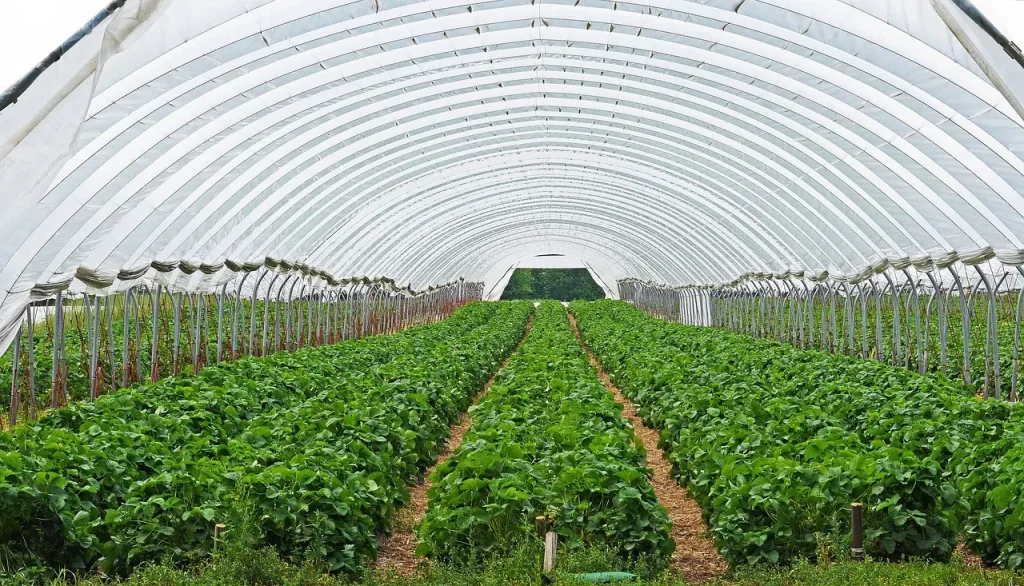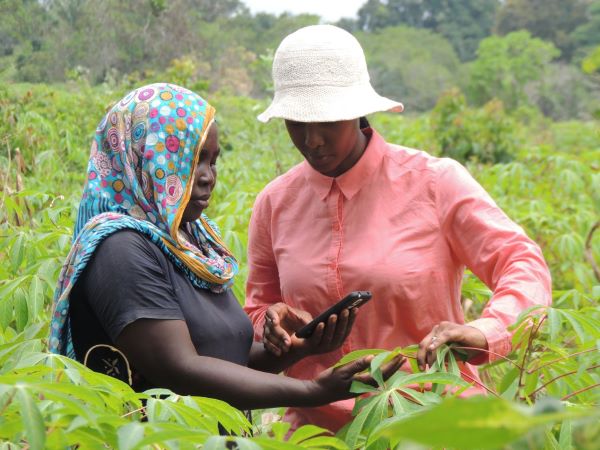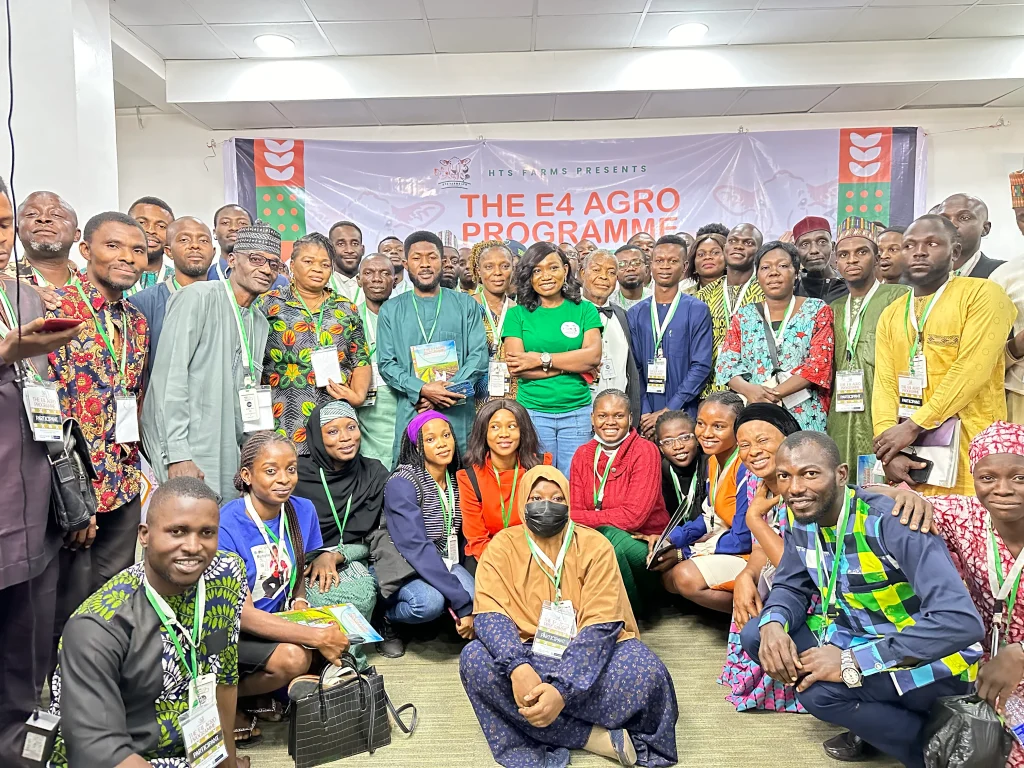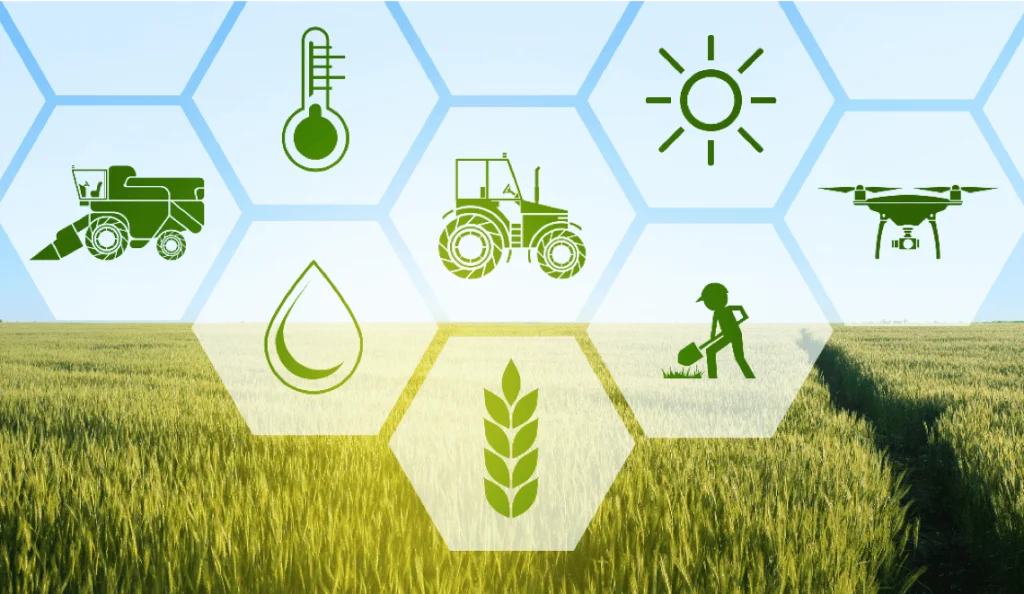
Ensuring the Future of Agriculture by Empowering the Next Generation
Table of Contents
- Introduction
- The Importance of Youth in Agriculture
- Challenges Facing Young Farmers Today
- HTSF Global’s Vision for Youth in Agriculture
- Key Initiatives by HTSF Global
- Digital Farmer Initiative
- E4 Agro Programme
- Future Plans and Impact
- Conclusion
- References
Introduction
Agriculture has long been the backbone of many economies, providing food, employment, and raw materials essential for various industries. However, in recent years, the sector has struggled to attract younger generations, leading to concerns about its sustainability and future growth. Recognizing this challenge, HTSF Global Nigeria Ltd is spearheading initiatives aimed at making farming appealing and accessible to the youth. In this blog post let’s explore how HTSF Global is transforming agriculture into a dynamic and attractive career path for young people, ensuring the sector’s longevity and innovation.
The Importance of Youth in Agriculture

Youth engagement in agriculture is critical for ensuring the sustainability, growth, and modernization of the sector. Their involvement can bring about a number of positive changes and opportunities:
Innovation and Technology Adoption
Young farmers are typically more open to adopting new technologies and innovative farming practices. They are more familiar with digital tools, data-driven decision-making, and modern agricultural techniques. This inclination toward innovation helps drive efficiency and productivity in the agricultural sector. For example, they may use precision agriculture, drones for crop monitoring, mobile apps for market access, and smart irrigation systems, all of which can optimize farming operations, reduce resource wastage, and increase yields.

Incorporating technology into farming also allows youth to tackle some of the longstanding challenges in agriculture, such as unpredictable weather patterns, pest control, and soil health management. Their tech-savvy nature means they are more likely to integrate digital platforms, enhancing communication with stakeholders and gaining real-time insights into market prices, weather forecasts, and farming techniques.
Sustainability
The youth play a vital role in ensuring the long-term sustainability of agriculture. Engaging young people helps preserve traditional agricultural practices while also integrating modern methods that are eco-friendly and sustainable. For instance, many young farmers today are embracing organic farming, permaculture, and regenerative agriculture practices that focus on improving soil health, conserving water, and reducing chemical inputs.

Their passion for environmental sustainability often drives them to experiment with sustainable farming techniques that can combat the effects of climate change and environmental degradation. Furthermore, youth participation ensures the transfer of agricultural knowledge and practices from one generation to the next, maintaining a continuum that supports long-term food security and ecosystem resilience.
Economic Growth
Agriculture provides immense potential for employment and income generation, particularly in rural areas. By attracting young people into the sector, agriculture can become a key driver of economic growth. Engaging youth in agriculture promotes entrepreneurship, as many young people establish small to medium-sized enterprises (SMEs) in agricultural production, processing, or value addition.

With the right support, such as access to financing, young farmers can diversify their operations, create jobs, and contribute to rural economic development. Their involvement can also lead to the creation of new markets and industries linked to agriculture, such as agri-tech startups, agro-tourism, and farm-to-table food ventures. This diversification not only enhances local economies but also ensures that the agricultural sector remains competitive on a global scale.
Food Security
Youth involvement in agriculture is essential to meet the growing demand for food as the global population increases. According to the Food and Agriculture Organization (FAO), the world will need to increase food production by approximately 70% by 2050 to meet this demand. Engaging the next generation of farmers is critical to achieving this target.

Young farmers bring new energy and perspectives to the agricultural sector, enabling it to adapt to changing food consumption patterns, such as the rising demand for plant-based products, organic foods, and alternative proteins. Their involvement also ensures that food production systems remain resilient, capable of adapting to climate challenges, and sustainable in the long term.
Challenges Facing Young Farmers Today
Despite the importance of youth participation in agriculture, several barriers prevent them from entering or thriving in the sector:

Perception Issues
One of the significant challenges is the perception of farming as labor-intensive, outdated, and less profitable compared to careers in other sectors. Many young people, especially in urban areas, view agriculture as a “last resort” profession, often associated with rural poverty and hard manual labor. This negative perception is exacerbated by the lack of awareness about modern farming techniques, technological advancements in agriculture, and the potential for entrepreneurship within the sector.
Changing this perception requires a concerted effort from governments, private sector players, and educational institutions to showcase agriculture as an innovative, profitable, and dynamic field that offers numerous opportunities for career growth and personal fulfillment.
Access to Resources
Young farmers often face difficulty accessing essential resources, such as land, capital, and equipment. In many countries, land ownership is heavily tied to family inheritance, with older generations controlling most of the agricultural land. This restricts young people’s ability to start their own farming operations or expand their enterprises. Additionally, many young farmers struggle to secure financing from traditional banks or government programs due to a lack of credit history, collateral, or formal business plans.
Furthermore, access to modern farming technologies, such as precision agriculture tools, machinery, and irrigation systems, is limited by high costs. This lack of access to both land and technology hinders the ability of young farmers to innovate and scale their operations effectively.
Education and Training
There is often a gap in agricultural education that prevents young people from acquiring the skills and knowledge needed to succeed in modern farming. Traditional educational systems in many countries do not offer sufficient agricultural training, and the curricula are often outdated, failing to incorporate the latest technological advancements and sustainable farming practices.
Many young people entering the agricultural sector lack practical, hands-on experience in modern farming techniques. This limits their capacity to adopt new practices, manage farms efficiently, and navigate the complexities of agricultural markets. More investment in agricultural education, vocational training, and mentorship programs is needed to equip youth with the skills required for success.
Market Access
Access to markets is another major hurdle for young farmers. Many of them struggle to connect with buyers, both locally and internationally, and often face unfair competition from large agribusinesses. The lack of proper infrastructure, such as roads and storage facilities, further complicates market access, especially in rural areas.
In addition, fluctuating market prices and the lack of established networks to negotiate better terms can discourage young people from entering or staying in farming. Without reliable market access and fair prices, it becomes difficult for young farmers to make a sustainable income from their produce, which further fuels the perception of agriculture as an unprofitable venture.
HTSF Global’s Vision for Youth in Agriculture
HTSF Global envisions a vibrant agricultural sector powered by enthusiastic and innovative young farmers. By addressing the challenges and leveraging opportunities, HTSF Global aims to make farming a desirable and rewarding career choice for the youth. Their mission encompasses providing access to modern tools, comprehensive training, and creating a supportive ecosystem that fosters growth and sustainability in agriculture.
Key Initiatives by HTSF Global
Digital Farmer Initiative
One of HTSF Global’s flagship projects, the Digital Farmer Initiative, is designed to bridge the gap between technology and agriculture. This initiative will provide smartphones and digital literacy training to farmers in five Nigerian states. By equipping young farmers with digital tools and knowledge, HTSF Global enables them to access e-commerce platforms, manage their farms more efficiently, and expand their market reach.


Key Features:
Smartphone Distribution: Ensures farmers have access to essential digital tools.
Digital Literacy Training: Empowers farmers with the skills to utilize technology effectively.
E-Commerce Adoption: Improving market access to quality inputs and other farm requirements which will in turn increase profitability.
E4 Agro Programme
The E4 Agro Programme focuses on empowering youths through specialized training in broiler production. This program also serves as a model for engaging young people by demonstrating the potential of modern agricultural practices to generate income and foster entrepreneurship.

Key Features:
Specialized Training: Provides in-depth knowledge and skills in broiler production.
Entrepreneurship Support: Encourages participants to start and scale their own farming businesses.
Community Building: Creates a network of empowered individuals supporting each other’s growth.
Future Plans and Impact
Looking ahead, HTSF Global is committed to further expanding its efforts to engage more young farmers across Nigeria, ensuring the agricultural sector remains robust, innovative, and sustainable. These plans focus on enhancing the capacity of young farmers through technology, training, and access to markets. Below is a detailed look at HTSF Global’s future initiatives and the anticipated impact.

Expansion of Digital Initiatives
One of HTSF Global’s key strategies is the Digital Farmer Initiative for young farmers across Nigeria. This initiative into more regions, HTSF Global aims to provide cutting-edge tools that will allow farmers to integrate technology more seamlessly into their agricultural practices.
The anticipated outcome of these efforts is a significant increase in agricultural productivity, as farmers will have access to real-time information and the tools they need to optimize their farming practices.
Comprehensive Training Programs
HTSF Global understands that technology alone is not enough to ensure success in agriculture. The organization plans to expand its training programs to equip young farmers with the comprehensive knowledge needed to manage modern farms and agricultural businesses.
By focusing on both practical and business aspects of farming, these comprehensive training programs aim to improve livelihoods for young farmers, enhance their ability to generate profits, and increase their contribution to the local economy.
Enhanced Market Access
A crucial aspect of supporting young farmers is ensuring they have access to markets where they can purchase quality farm inputs for higher productivity. HTSF Global recognizes this challenge and is developing new strategies to enhance market access for youth in agriculture.
This enhanced market access will result in greater economic empowerment for young farmers, helping them establish sustainable, long-term careers in agriculture.
Conclusion

HTSF Global Nigeria Ltd is at the forefront of a transformative movement in agriculture, making farming an appealing and viable career option for the youth. Through innovative initiatives, comprehensive training, and a supportive ecosystem, HTSF Global is ensuring that the next generation of farmers is well-equipped to lead the sector into a prosperous and sustainable future. By making agriculture cool again, HTSF Global is not only securing the future of farming but also contributing to the overall economic and social development of Nigeria.
References
HTSF Global Nigeria Ltd Official Website: https://htsfglobal.com
Digital Farmer Initiative Overview: HTSF Global Internal Documents, August 2024.
E4 Agro Programme Details: HTSF Global Internal Reports, September 2024.
Sustainable Development Goals (SDGs): United Nations, https://sdgs.un.org/goals
Agricultural Youth Engagement Studies: FAO Reports, 2023.
